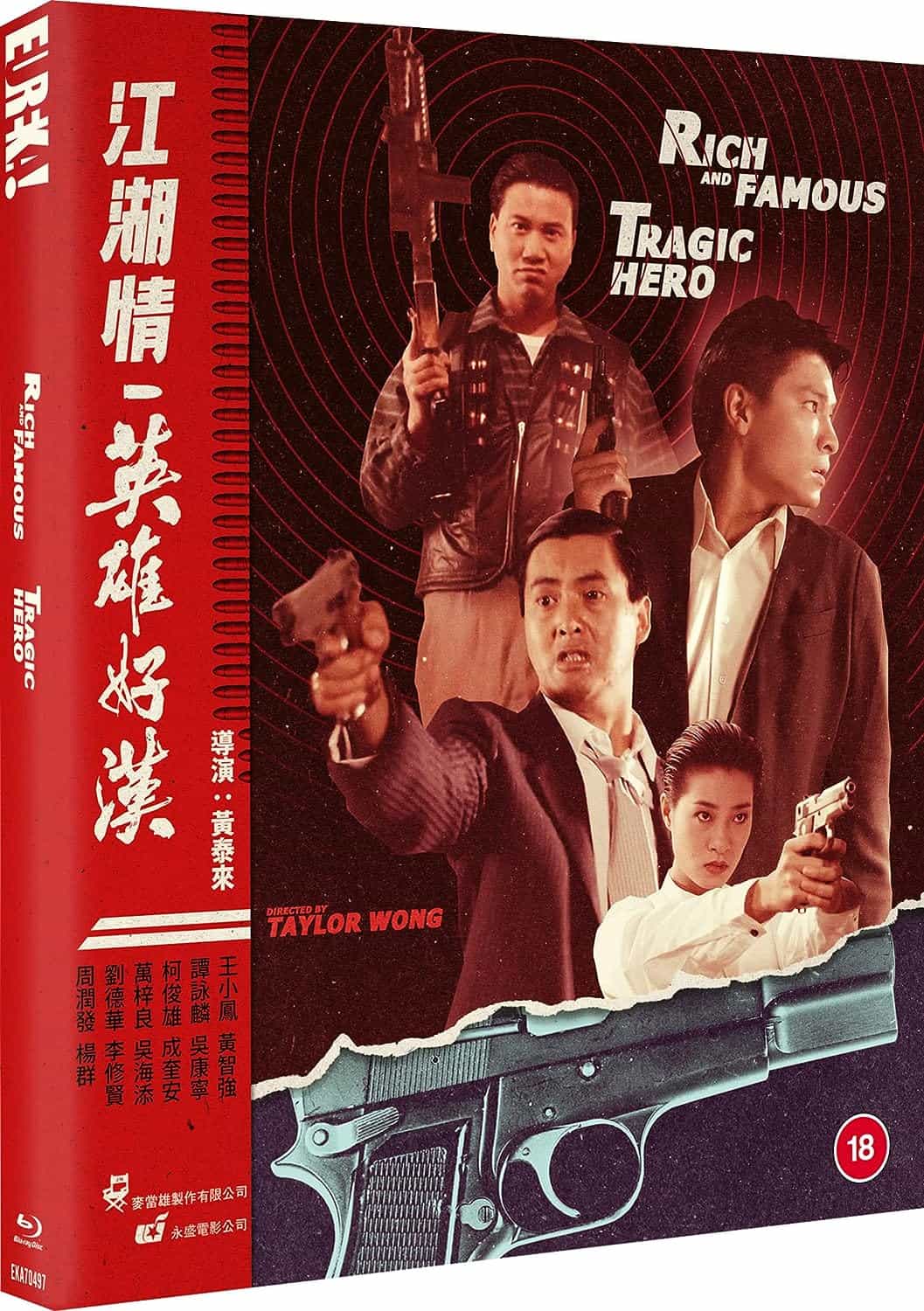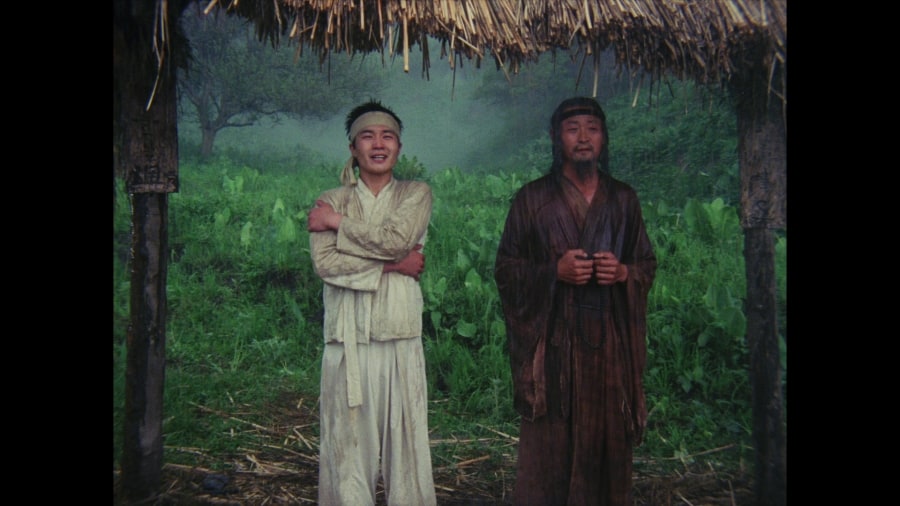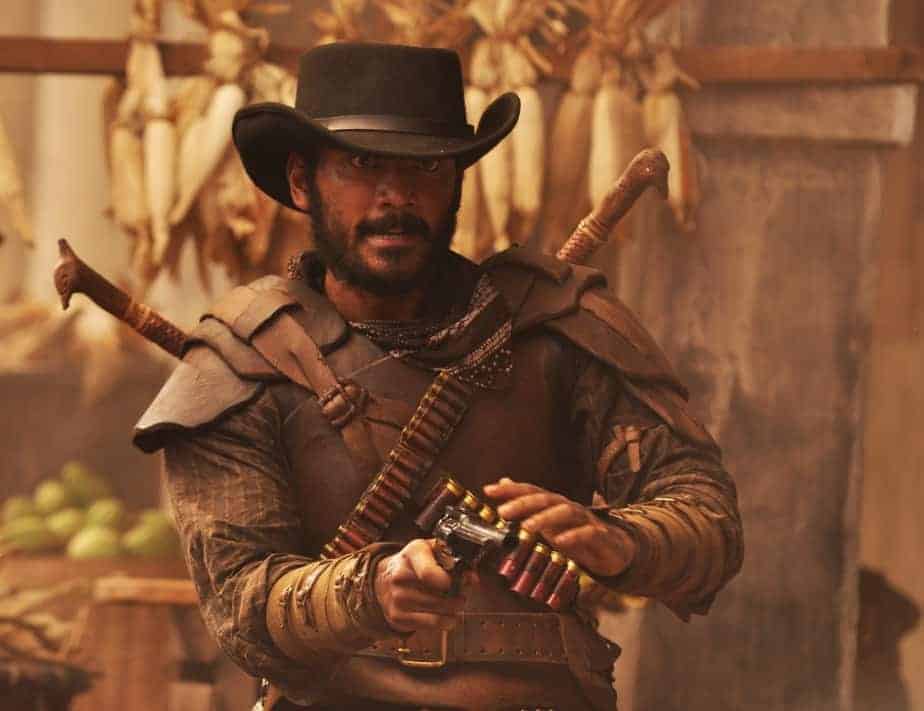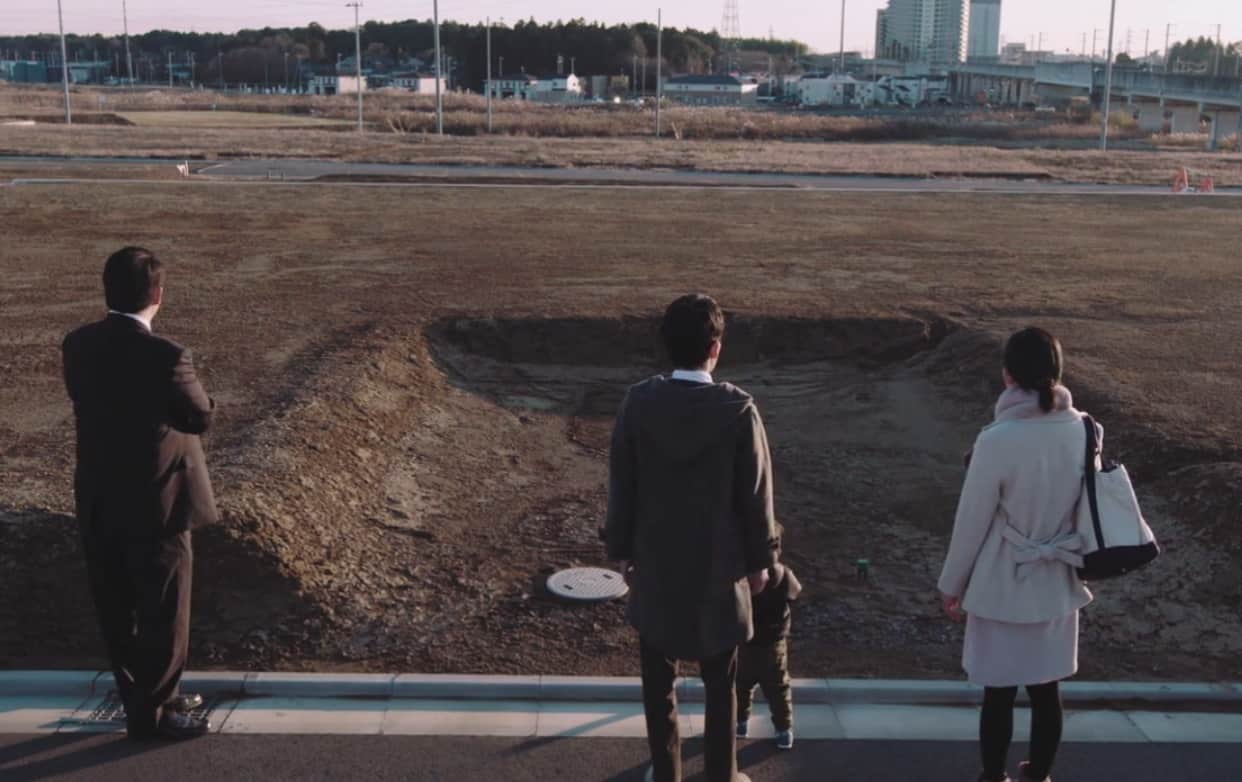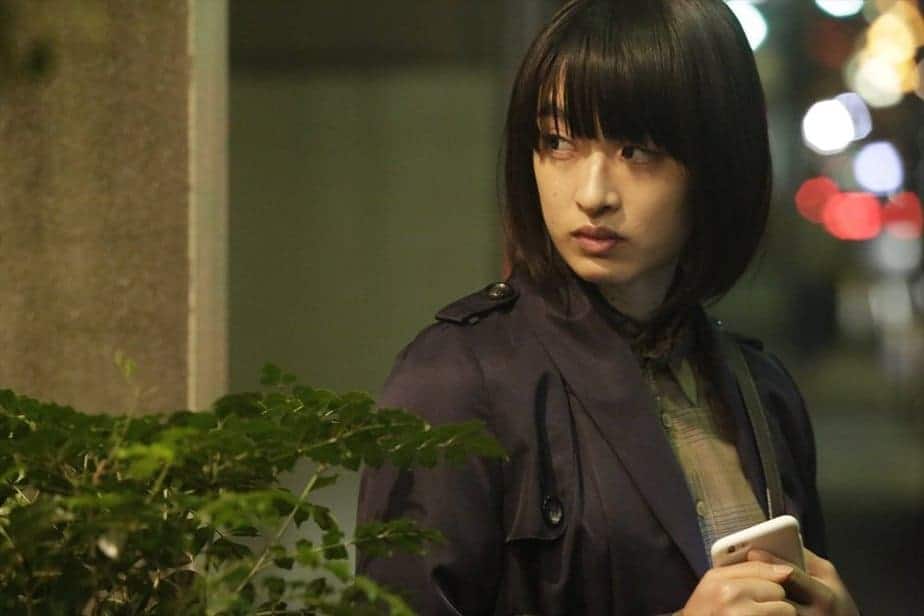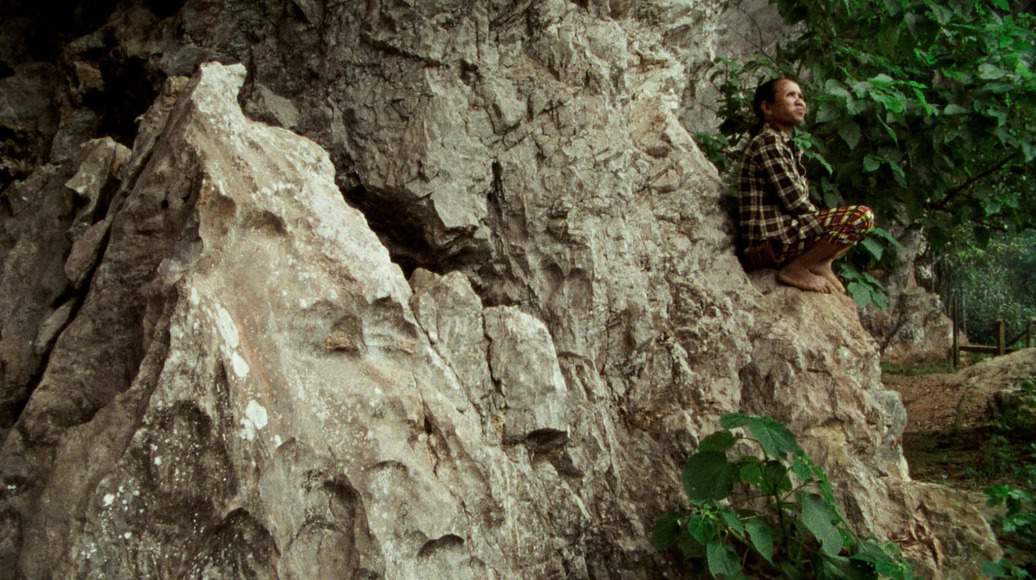Commercial cinema especially in Southeast Asia has always followed the money. A successful movie at the box office would inspire countless imitations until the well would run dry and takings decline leading to the next cycle. “A Better Tomorrow” upon release in 1986 really hit the popular culture zeitgeist, creating an iconic figure in Chow Yun Fat, a whole new subgenre in Heroic Bloodshed and inspired a wave of copycats and inspirations. One of the more mature inspirations was a double bill by Taylor Wong in “Rich and Famous” and “Tragic Hero” released the following year. Headlined by then ubiquitous Chow Yun Fat, it would strive for epic status telling its story over two features.
The storyline kicks off in the late 1960's with Yung (Alex Man) and adopted brother Kwok (Andy Lau) getting involved in petty crime with Yung racking up a large debt. Their sister Wai-chu (Pauline Wong) persuades boss Chai (Chow Yun Fat) to bail them out and they begin to work for his organization. By the 1970's they have advanced in the ranks and Wai-chu works as a housekeeper whilst having unrequited feelings for Chai. Chai is keeping an old friend Fan (Fan Mai Sheng) safe as his life is threatened by other gangs. Chu (Ko Chun-hsiung) another boss cannot understand this sense of honour and Yung is convinced to kill Fan, an act that leads both brothers to be expelled from Chai's organization. Yung, being increasingly resentful, plots revenge on Chai and attacks on his wedding day (To Po-yee (Carina Lau) who Yung had set Chai up with despite his own love for her).
“Tragic Hero” picks up this story a decade later. Chu has made amends with Chai as they recognize the changing of the guard and are concerned with the way the newer breed act. Yung is now more ruthless than before and begins a campaign to bring down Chai that results in tragedy and betrayal. Finally, Kwok and Chai are forced to confront Yung in an explosive confrontation that will decide their fates.
The original release of the two features effectively sums up the commercial aspect of Hong Kong Cinema. “Tragic Hero” with its more prominent featuring of Chow Yun Fat and action laden finale was released first, making “Rich and Famous” which followed three months later in reality a prequel. This would have lessened the dramatic aspects with the gradual evolution of characters playing into the actions we find in the second. Fortunately, we now have the opportunity to follow it in chronological order thus restoring the proper flow.
Check also this video
What this gives us is an action drama that actually contains depth and shading into a much wider cast than is normally to be found. The characters having more detail than the standard broadly sketched stereotypes. Central to all of this is Alex Man as Yung. He is the driving force of all the action and it's a superb performance from an oft unappreciated actor as he switches gears from young thug to psychotic boss over the course of the extended running time. From the outset he is the “bad seed”, causing trouble and overreaching in ambition. His step up the villainy ladder grow steadily from the betrayals in “Rich and Famous” to the attempted patricide in “Tragic Hero”. What makes him a more tragic figure is that originally, he is seen to be loyal to Chai. His inability to understand the old code of honor is what results in him being discarded. It's this sense of his own feelings of betrayal that then drive him alongside his unrequited love for Po-yee. We are allowed to see his motivations which makes Yung more than just a one-note mobster.
Andy Lau as Kwok is in effect Andy Lau. This is a role of which we would see repeated many times over the years as the bad boy with a conscience. He is the epitome of the “Brotherhood” ideology that would form such a central part of the Heroic Bloodshed Genre. His is a tale of conflicted loyalty. Firstly, to his adopted brother Yung but then increasingly to Chai. It's a solid performance that gets somewhat lost amidst the laid-back cool of Chow Yun Fat and Alex Man's villainy.
Chow himself is charisma personified. A year on from “A Better Tomorrow” and his presence would be found in many a similar role. Initially his Chai is a figurehead and reactive character. The action revolves around him and for the most part he is on the side-line before stepping into the fray in a shoot-out or speech. Once we reach “Tragic Hero” he steps to the fore and gets to display a lot more ranch. One superb moment is his reaction to the death of one of his closest aides that has betrayed him, going from anger to shock as his subordinate slides down the window of the car after being stabbed. The reality of the situation hits him hard. In many ways, it is a stereotypical Chow role that he would riff on, but he makes it a more sympathetic one.
Surrounding the trio is a range of solid supporting roles featuring a number of familiar genre faces. Feng Mei Sheng, who many would recognize from dozens of martial features, is the ailing gang boss that inadvertently triggers the action. It's Chai's loyalty to him that the newer bosses struggle to understand. Also note his bodyguard was the referee in “Bloodsport”! Perpetually the villain or henchman, Shing Fu On gets a rewarding part as Big 6. Devoted to Chai, we see more humanity from him than is normally on display. His exit is one of the more spectacular ones you will see in the genre with a great jump moment thrown in. Alan Tam features strongly in the first feature. A cowardly individual that finds his courage at a huge personal cost. It's another excellent performance amongst many.
The central female characters, whilst mainly in the background, are no damsels in distress. Pauline Wong shows a quiet determination, submerging her feelings out of devotion and being prepared to put body and life on the line. Carina Lau who would get much better roles as her career progressed also shows steel in stereotypical gangster's wife part.
If the films have a flaw, it's in some of the inconsistencies. Chu is the main antagonist in the first half and yet all of a sudden is closely aligned with Chai in the second. There is no discernible reason for it other than as a plot device for Yung's malevolence. We never get a sense of time and place despite being told when the films are set. Some appear to age faster than others too. Chai appears to look the same despite the years passing between both chapters. Danny Lee also has a very underwritten part. More a cameo appearance in a few scenes as the one good cop in the piece.
Check also this video
The dramatic scenes are handled well, helped by an excellent cast. The build from the first part means that the extended violence resonates more. In “Tragic Hero” the aftereffects are felt, and these are not just one note characters getting taken out. The action, when it kicks off, is taut, well edited and contains less of the slow-motion theatrics of the other imitations. There is less action in “Rich and Famous” apart from an early shootout that sees Chai driven to the rescue in a Volkswagen camper and the climax at the wedding. Hence why it was released second. “Tragic Hero” ups the ante with a suitably explosive finale very much in the Heroic Bloodshed style. Chai and Kwok take on Yung's horde of expendable extras with M16 Grenade launchers etc. It's a fitting, over the top conclusion that wraps up the story neatly.
As always with Hong Kong cinema, budget plays a part and so the epic nature it strives for here isn't always within its capability. Despite this though, the camerawork is excellent throughout and is accompanied by a suitably haunting score in “Tragic Hero”. With all of these “Heroic Bloodshed” featured, the focus is very much on the notion of brotherhood, a transition from the classic martial arts predecessors. We get two strands of it on show here. The first is the classic brothers-turned-enemies with Yung and Kwok. Yung is very much a “Scarface” clone, sharing similarities with Al Pacino's violent madness in the Brian De Palma remake. Violence is the ultimate answer and the only way to gain control and keep it. Even his own men are shocked when he orders them to beat up his own father, getting a sense that even for them a line is being crossed. For even Yung recognizes this as he had attempted to keep his father safe despite his actions against the rest. Kwok by contrast is the filial son even though adopted. His actions are more classical, standing by Yung despite his actions in the first half. He possesses the code of honour that brings him more in line with his alternative father figure Chai.
With Chai we see the other side of the brotherhood notion. His loyalty to Fan is questioned by others yet he sees it as repaying a debt of honour despite the consequences. It's a curious dynamic since he is the head of a criminal organization yet is seen as the noble figure. We know very little about him other than what Chow Yun Fat presents to us, so we are supposed to judge him by his actions and this loyalty is a quality to be admired. Even Danny Lee's policeman acknowledges this towards the conclusion. The other gang bosses with their betrayals and scheming are seen to be lesser figures. It typifies the commercial heart of Hong Kong cinema, where accumulation of wealth is the key goal and being respected for having power however form it comes in. These movies were often criticized for glamourizing the criminal lifestyle and Chai certainly does live a gilded existence for the most part.
“Rich and Famous” and “Tragic Hero” may not be the first names on everyone's lips when asked about the best of the heroic bloodshed genre. Yet they are fine examples with good direction, engaging characters and well directed action. Spreading the story over two parts allows it room to breathe and develop not just the main cast but a range of supporting roles too. Watch them in the correct order and you have a superb addition to one of the defining genres in Hong Kong Action cinema.



